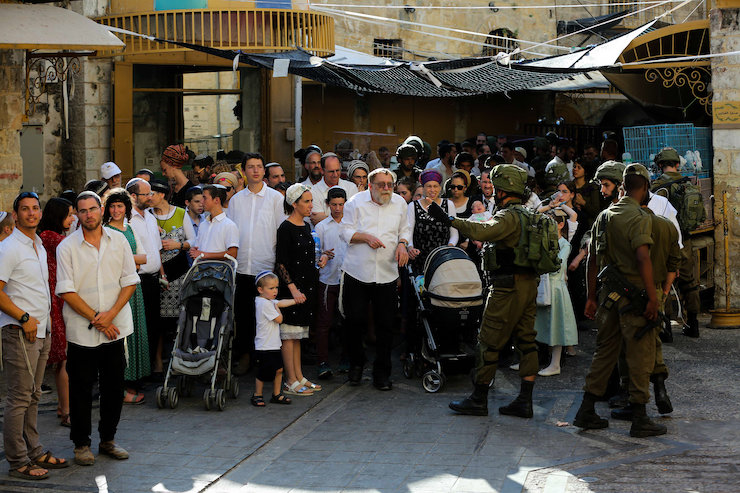Once the ascendant elite, the settler movement’s political power is on the decline.
By Meron Rapoport

While political analysts wonder if we have come to the end of the Netanyahu era, little attention is being paid to another major outcome of this election — that is, the decline of the national religious movement’s political power. Once, these self-described lords of the land believed they were well on their way to becoming Israel’s new political and cultural elite. But the numbers show that their political influence is waning.
The Likud has always been at the center of the right wing bloc. In recent decades, it absorbed the parties that represent three major demographic groups: the ultra-Orthodox, immigrants from the former Soviet Union, and the national religious or settler movement. Netanyahu created a coherent political bloc, which promised a near-axiomatic right wing majority in each election.
Netanyahu made the consolidation of the right wing bloc his political life’s work, based on the belief that this was the best way to prevent a Palestinian state. So, he strengthened Likud’s connection with the national religious camp, because their loyalty to the Land of Israel was beyond question — in contrast to the Likud’s old base, which is more interested in libertarianism than in territorial expansionism. This is one of the reasons that Netanyahu surrounded himself with people who wear the crocheted-style yarmulke favored by national religious settlers.
The April election caused a rift in the right wing bloc, with the parties representing the ultra-Orthodox and voters from the former Soviet Union pulling back from the national religious ideologues, whose worldview they do not share. They were never particularly interested in either the idea of controlling the Biblical Greater Land of Israel, nor in the settlement project.
Liberman didn’t have to work very hard to convince his base of secular hawks from the former Soviet Union that the ultra-Orthodox were their greatest enemy. The ultra-Orthodox are the ones who question their Jewish identity and try to impose their religious lifestyle on them, with their refusal to allow public transportation on the Sabbath and their attempts to control the sale of non-kosher foods. The ultra-Orthodox fought back.
In the Sept. 17 elections, both groups came ahead, with Liberman raising his party’s five mandates to eight and the ultra-Orthodox increasing theirs from 16 to 17. But there is little chance of the right wing parties coming together again to reconstruct their once-powerful alliance.
What’s more interesting is the fate of the national religious parties, which harnessed their destiny to the Likud. In April, they won 44 mandates (35 for the Likud, four to Kahlon, and five to the union of right-wing parties), plus four from Bennett and Shaked’s New Right party, and another three from Moshe Feiglin’s Jewish Leadership. Altogether, 51 mandates went to the right wing bloc.
This election saw the hollowing out of the national religious movement’s political power. The Likud won only 31 mandates, down from 35 in April. Even with the seats that were won with votes from supporters of Kahlon, Feiglin, Smotrich, Rafi Peretz, and Shaked and Bennett, Netanyahu ended up with only 38 mandates in his bloc. The Kahanist Otzma Yehudit (Jewish Power) did not pass the threshold; but even if it had, it would have brought only four additional seats, bringing the total to 41 of the 61-seat minimum required for a coalition government.
The balance of power in the political right is now shaken up, with critical implications. If the ultra-Orthodox parties see that partnering with the right wing bloc doesn’t guarantee them a seat in the government, they will rethink their alliance. If voters from the former Soviet Union see that going to battle against the ultra-Orthodox makes them kingmakers in the Israeli political arena, they won’t be rushing back to rejoin Netanyahu’s bloc.
The national religious movement will pay the highest political price for this redistribution of the balance of power. They have consistently failed to break into politics as an independent party, despite their self-perception as lords of the land. Instead of rising to become the “new elite,” the settler movement might be on its way to becoming a political burden — much like the now all-but forgotten Kibbutz Movement, which became nearly irrelevant in 1977 after Menachem Begin led the Likud to victory. We are not there yet, but we are closer than anyone would have thought six months ago.
A version of this article was first published in Hebrew on Local Call. Read it here.
